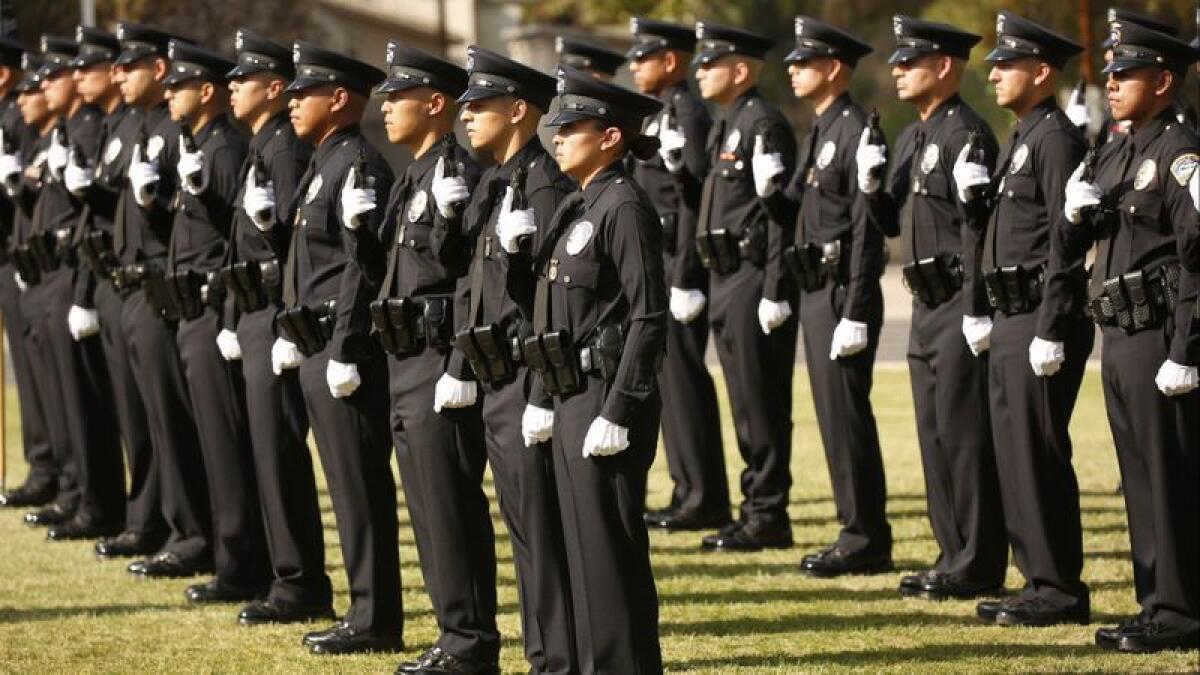Author of California police transparency law says it was meant to open up past records

- Share via
Weighing in on a statewide legal battle over law enforcement records, the author of California’s landmark police transparency law formally notified the state Senate on Thursday that her bill was intended to open up records from the past as well as those going forward.
The move comes amid a flurry of litigation by police unions across the state that are seeking to block access to records of incidents that took place before Senate Bill 1421 went into effect Jan. 1. The police unions argue that the law would violate officer privacy protections if applied to cases predating the beginning of the year.
In a one-page letter to the state Senate Rules Committee, Sen. Nancy Skinner (D-Berkeley) sought to clarify the intent of the law, which opens up records of shootings by officers, severe uses of force and confirmed cases of sexual assault and lying by officers.
In the letter obtained by The Times, Skinner said any relevant discipline records kept by a government agency should be disclosed under the new law, which was approved last year.
“Therefore, it is my understanding in enacting SB 1421 that the change in the law applies to all disclosable records whether or not they existed prior to the date the statute went into effect,” Skinner wrote. “This is the standard practice for public records legislation in California.”
The state Senate unanimously approved of submitting the letter to the rules committee.
Two weeks ago, a Los Angeles County judge granted a temporary restraining order to block some police use-of-force and misconduct records from being released by the county.
The decision came just days after The Times and Southern California Public Radio filed a lawsuit against Los Angeles County alleging the Sheriff’s Department violated the state public records act in failing to timely disclose records about two sheriff’s deputies.
The order issued Jan. 24 after a request from the Assn. for Los Angeles Deputy Sheriffs means the records sought by the media organizations are temporarily blocked from release.
Law enforcement unions in Ventura, San Bernardino and Riverside counties as well as the city of Los Angeles have also persuaded courts to temporarily restrict access to records predating the law.
“The police unions lost Round 1, so they are going to court. It’s not unusual for us to have bills challenged in courts,” Skinner said in an interview.
Jacob Kalinski, an attorney representing the Assn. for Los Angeles Deputy Sheriffs and other police unions seeking temporary restraining orders, said Skinner’s letter doesn’t change anything from his perspective.
“There isn’t anything in the bill that passed that says it’s intended to be applied retroactively,” Kalinski said.
Before the law went into effect, California had the nation’s strictest protections on internal police files, barring even prosecutors from directly accessing them.
Skinner said some local government officials have told her they feel overwhelmed by the volume of public records requests made under the new law, but she said it’s not surprising given the state’s long-standing police confidentiality laws.
“Of course we should expect a flood of requests when we’ve had 40 years of complete secrecy and inability for the public to have any access to these records,” she said.
Several agencies — including the San Luis Obispo County Sheriff’s Office and the San Bernardino, Santa Barbara, Burlingame, Cathedral City and Chula Vista police departments — have already disclosed records under the new transparency law.
“What we have already seen from those jurisdictions that have released records is that sunshine is a great disinfectant,” Skinner said.
The separate lawsuit filed two weeks ago by The Times and SCPR, which operates KPCC 89.3 in Pasadena, says the Los Angeles County Sheriff’s Department has violated the state public records act by not disclosing records about two deputies. The media organizations argue the documents are subject to release under the new transparency law.
Also two weeks ago, The Times and the Sacramento Bee sued the Sacramento County Sheriff’s Department over the release of documents about misconduct or significant use of force by deputies.
Times staff writer Liam Dillon contributed to this report.
More to Read
Sign up for Essential California
The most important California stories and recommendations in your inbox every morning.
You may occasionally receive promotional content from the Los Angeles Times.











